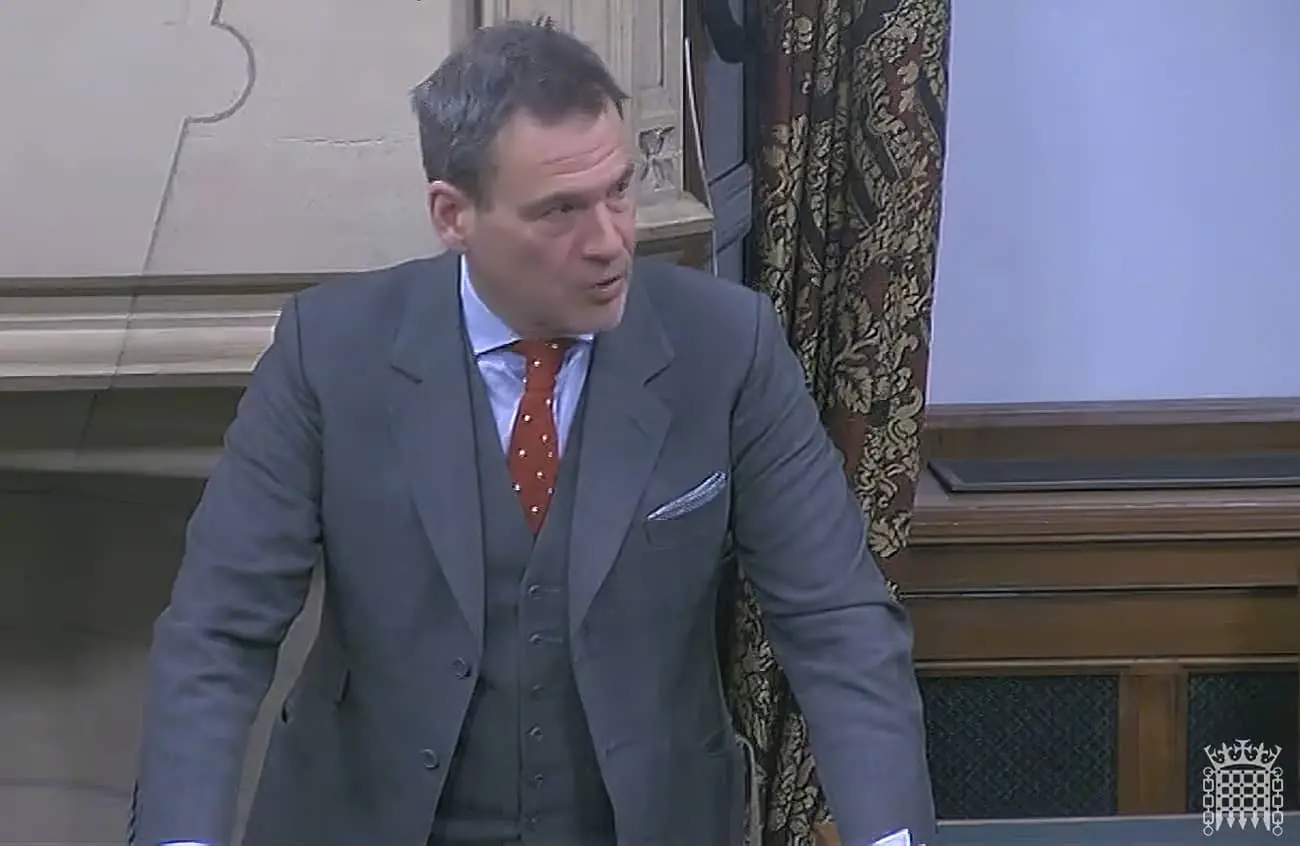An hour-long debate about Covid-19 modelling data, called by Isle of Wight MP, Bob Seely, took place in Westminster Hall yesterday (Tuesday).
Bob Seely started his speech by praising the “remarkable, wonderful science” that has taken place since the start of the Covid Pandemic, but questioned the modelling that the Government have relied upon.
He said.
“Thanks to some questionable modelling that was poorly presented and often misrepresented, never before has so much harm been done to so many by so few based on so little questionable and potentially flawed data.”
Seely: Pretty much getting to be a national scandal
The IW MP added that the use of modelling was getting to be a national scandal but didn’t blame the modellers, instead he aimed his fire at those who interpreted the modelling. He said,
“I believe that the use of modelling is pretty much getting to be a national scandal.
“That is not just the fault of the modellers; it is how their work was interpreted by public health officials and the media—and yes, by politicians, including the Government, sadly.”
Modellers had not been questioned enough
However, he them went on to say that he didn’t have ‘an axe to grind’, but said the modellers had not been questioned enough.
Seely claimed there is “a growing body of work that is, frankly, taking apart” Imperial College’s modelling, which was headed up by the epidemiologist, Professor Neil Ferguson, and referred to papers and articles that stated there was “no evidence of an increased risk of severe Covid-19 outcomes”.
During his speech, Seely said he would quote from 13 academic papers and 22 articles authored by a total of approximately 100 academics.
Started with Foot and Mouth
Seely claims a story of three scandals and goes back to the Foot and Mouth emergency in 2001.
He said Government policy was allegedly heavily influenced by Imperial College modelling (Prof Ferguson worked on the team that was headed up by Prof Roy Anderson) and that following the disaster, which saw millions of animals slaughtered and burned, the authors of a paper in 2006 concluded that “the models were not fit for the purpose of predicting the course of the epidemic”.
Seely: “Becoming a lockdown sceptic”
Seely went on to quote a pre-print article by four authors, “Effects of non-pharmaceutical interventions on Covid-19: A Tale of Three Models”, which said,
“Claimed benefits of lockdown appear grossly exaggerated.”
Speaking about how schools were shut down and the impact on young people, Seely said,
“I am not a lockdown sceptic, but I am becoming so.”
He goes on to say,
“We have had hysterical forecasts, models taken out of context, and worst-case scenarios normalised.”
Why did politicians say, “Follow the science”
Seely went on to say,
“To sum up in one sentence how we got this wrong, we have effectively taken the most dangerous course of action and collectively—the politicians, media, scientists and health professionals—presented that as the most likely course of action, but it was not.
“Why did politicians say, “Follow the science” as a way of shutting down debate, when we know that science is complex and that our outputs are dependent on our inputs? It was down to public-health types, whose defensive decision making would only ever cost other people’s jobs, other people’s health, other people’s sanity, other people’s education and other people’s life chances.”
Attack on (some of) the media
Seely made a future swipe at some of the media, but praised the likes of the Daily Mail for “keeping alive freedom of speech”, he said,
“The BBC and the Guardian have been salivating at state control and doomsday scenarios.
“Against this tsunami of hysteria and fear, thank God for The Spectator, The Telegraph and, yes, the Daily Mail for keeping alive freedom of speech and putting forward an alternative, which is now being increasingly scientifically vindicated.”
On with the debate
Seely’s speech was followed by Conservatives, Steven Baker, Anne Marie Morris, Miriam Cates and Aaron Bell.
SNP Shadow Spokesperson, Brendan O’Hara, disagreed with what the Isle of Wight MP had presented, saying,
“A report by researchers for the journal Nature found that the first lockdown saved up to three million lives in Europe, including 470,000 in the UK. The success of disease modelling was in predicting how many deaths there would have been if lockdown had not happened. ”
He added,
“While Bob Seely was telling anyone who would listen that modelling predictions were a national scandal, Professor Chris Whitty was telling the Science and Technology Committee that:
“a lot of the advice that I have given is not based on significant forward modelling. It is based on what has happened and what is observable.”
He finished by saying,
“The primary purpose of modelling is simply to offer a sense of the impact of different restrictions. A report by researchers for the journal Nature found that the first lockdown saved up to 3 million lives in Europe, including 470,000 in the UK. The success of disease modelling was in predicting how many deaths there would have been if lockdown had not happened. SAGE officials, scientists and medical staff have done a remarkable job to keep us all safe, and many people across these islands owe their lives to them.”
Anderson: Not been an honest and independent inquiry
The Labour Shadow Minister, Fleur Anderson, joined the debate. After the traditional thanking of Bob Seely for securing the debate, she went on to say,
“I also welcome extreme scepticism about some of the decisions made by the Government.
“This debate has not been an honest and independent inquiry into the science, however. It clearly comes with an ideological bent, so it has to be taken in that light.”
Anderson: Models are “what ifs”
Anderson goes on to quote a SAGE member, by adding,
“As Graham Medley, one member of SAGE, explains very clearly, models are not predictions and are not meant to be seen as such; they are the “what ifs” that can be used by Governments to inform decisions and guide them as to what they might need to prepare for, which should include the worst-case scenarios—that is a crucial distinction.
“Accurate predictions cannot be made with such an unpredictable virus, when individual behaviour is also unpredictable, so models and scenarios are the best tools to give us the parameters for the decisions that will be made.”
Maggie Throup, the Parliamentary Under-Secretary for Health and Social Care, responded to the concerns raised before the debate came to an end just after 5.30pm
Read or watch
You can read the transcript in full, or watch the recorded footage (starts at 16.30).
Image: © Parliament TV




